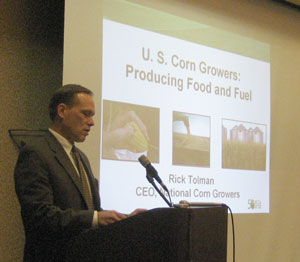 Here’s a truly inspirational story. A group of students in Salt Lake City bought a bus on eBay to use for class trips. Now, the students at City Academy are even making their own biodiesel to drive the thing! Check out this story from KSL-TV:
Here’s a truly inspirational story. A group of students in Salt Lake City bought a bus on eBay to use for class trips. Now, the students at City Academy are even making their own biodiesel to drive the thing! Check out this story from KSL-TV:
Their science teacher Shea Wickelson is helping them learn how to make biodiesel, a combination of used vegetable oil and other chemicals.
Shea Wickelson, Science Teacher: “We spent a whole year of chemistry curriculum tying chemistry concepts to our coming up with sort of the perfect biodiesel formula, and all of the students did their own independent research.”
Maddy Hartley, High School Student: “We didn’t have to convert it, we didn’t have to add anything, we just run the biodiesel just like we would normal diesel, and the thing about biodiesel, the point of biodiesel, is to make vegetable oil a little less thick.”
By the way, City Academy is a public charter school that does college prep courses. Its motto is “Excellence and Innovation in Academics and Citizenship.”


 According to the U.S. Department of Agriculture’s latest projections, ethanol will dominate the farm economy for the next decade.
According to the U.S. Department of Agriculture’s latest projections, ethanol will dominate the farm economy for the next decade.
 Colorado motorists will soon have 40 more pumps to fill up with 85 percent ethanol.
Colorado motorists will soon have 40 more pumps to fill up with 85 percent ethanol. Arizona-based
Arizona-based 
 Rising tortilla prices in Mexico are not the result of increased U.S. ethanol production or U.S. corn prices, according to the CEO of the
Rising tortilla prices in Mexico are not the result of increased U.S. ethanol production or U.S. corn prices, according to the CEO of the 
 Back in
Back in